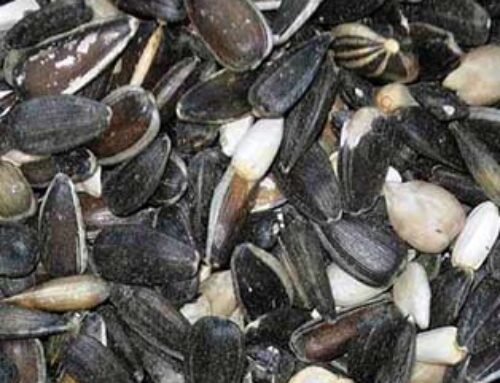Now that the snow cover is gone here in the Northland, people are discovering both the good and the bad. A friend of ours experienced the good when a melting snowbank revealed the phone she lost months ago. Whether it works or not remains to be seen.
All sorts of things reappear in our yards each spring; the leaves we didn’t get raked up before the snow fell, the branches that have fallen from the trees during the winds of winter, too many dog droppings, and under some of the bird feeders – mounds of shells from black sunflower seeds. We stare out the windows on dreary, wet days at the mess that must be cleaned up and wonder how we can have a different scene next year.
Somehow we will never get all the leaves raked before the snow falls, and for those people with dogs, using the scooper immediately after the ‘potty’ break would help, but a guaranteed improvement could be made by feeding the birds seeds that don’t have shells. It not only makes it easier for the birds in the winter months, but it removes one spring clean-up task.

Nyjer seed is very tiny and mesh bags such as these are one option for providing the seed for the birds.
Some of the best choices for a cleaner yard are; No Mess Mix, Shelled Sunflower, (also known as medium grade sunflower hearts and chips), and Nyjer. All of these seeds provide high nutritive value, with the added benefit of leaving little waste behind. The No Mess Mix contains hulled sunflower seeds, Nyjer and millet. It is popular with a wide range of small and medium size birds. The Shelled Sunflower seeds will attract a variety of birds and the Nyjer will be especially popular with American Goldfinch and Pine Siskins. These tiny seeds are best ‘served’ in a special feeder with very small holes (ports) – perfect for the small, finely pointed bills of the above mentioned birds.
Another important aspect to the seeds mentioned above is their non-sprouting qualities. Once most sunflower seeds land on the ground, if they aren’t raked up in a timely manner they will eventually begin to sprout. Growing sunflowers in your garden may be desirable, but not in your yard or your patio.
Save time and energy this spring and summer with these bird seed choices. Use the extra time to sit back and enjoy the activity at your feeders with the many wonderful birds that have returned from their winter hiatus.
By Kate Crowley


